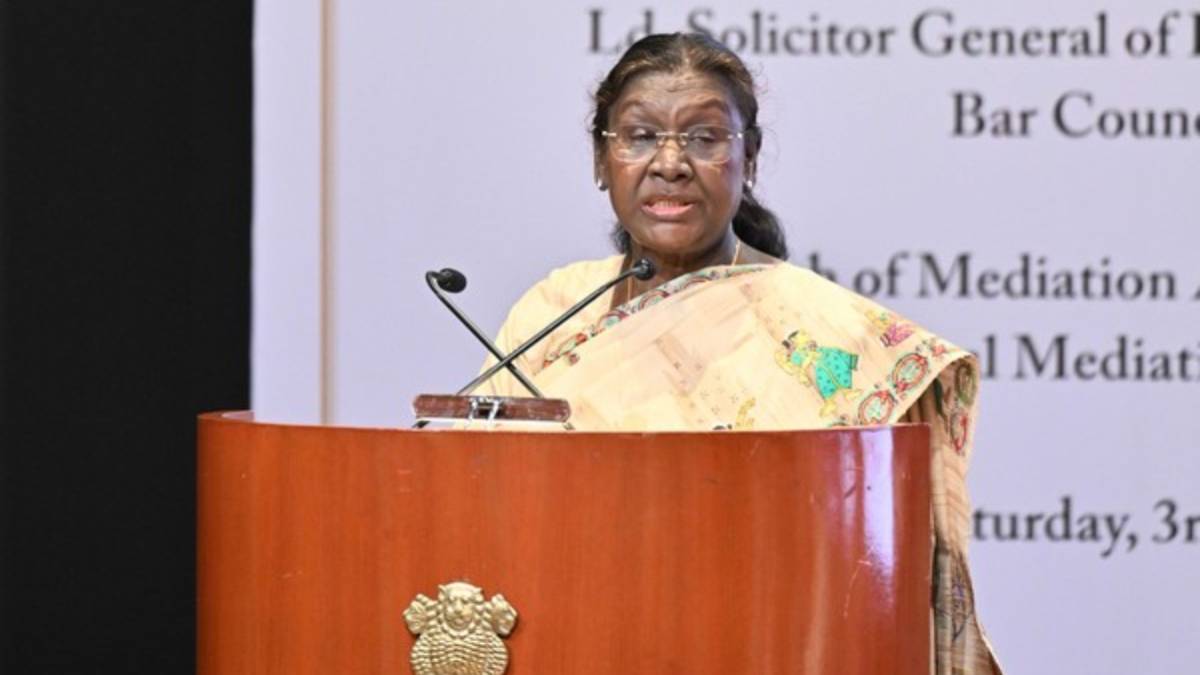In a rare constitutional intervention, President Droupadi Murmu has raised strong objections to the Supreme Court’s April 8 ruling that imposed deadlines on the Governor and the President for acting on state Bills. Responding to the verdict in the Tamil Nadu government vs Governor case, the President argued that the Constitution does not prescribe any timelines for these actions and questioned the legal basis of the Court’s directives.
In her formal response, President Murmu emphasized that the discretionary powers of the Governor and the President, as laid out in Articles 200 and 201 of the Constitution, are not time-bound and must be exercised with due regard to broader principles like federalism, national integrity, and separation of powers.
- Article 200 allows a Governor to assent to, withhold, or reserve a Bill for the President, but it does not set a time limit for making such decisions.
- Article 201 similarly outlines the President’s powers to act on Bills reserved by Governors, without imposing any deadline or process for doing so.
President Murmu argued that the Supreme Court’s interpretation of a “deemed assent” mechanism undermines the discretionary authority constitutionally granted to both offices.
The President noted the Court’s conflicting judgments on the justiciability of Presidential assent under Article 201 and pointed out that many states approach the Supreme Court under Article 32, rather than the more appropriate Article 131, to resolve federal disputes.
She also raised concerns over the scope of Article 142, which empowers the Court to pass any order to ensure “complete justice.” Murmu questioned whether this article permits the judiciary to override or prescribe procedures that conflict with the Constitution.
Citing the unresolved constitutional issues, President Murmu has invoked Article 143(1)—which allows the President to seek the Supreme Court’s opinion on questions of law of public and constitutional importance. She has presented 14 critical questions, including:
- What are a Governor’s constitutional options under Article 200?
- Is the Governor bound by ministerial advice?
- Are actions under Article 200 subject to judicial review?
- Can courts impose timelines where the Constitution is silent?
- Does Article 361 protect Governors from judicial scrutiny?
- Is the President’s discretion under Article 201 justiciable?
- Can courts enforce procedures on the President’s constitutional powers?
- Must the President seek Court guidance under Article 143 for reserved Bills?
- Are decisions under Articles 200/201 challengeable before a law is enacted?
- Can Article 142 override explicit constitutional provisions?
- Can a law take effect without the Governor’s assent?
- Must constitutional interpretation cases be referred to a five-judge bench under Article 145(3)?
- Does Article 142 empower the Court to contradict statutory law?
- Is a suit under Article 131 the only valid mechanism for Union–State disputes?
By raising these foundational questions, President Murmu has challenged the judiciary’s recent approach to executive powers and reinforced the need for clear judicial interpretation of constitutional roles.
Her move could have far-reaching implications for Centre–State relations, the role of Governors, and the judicial review of executive discretion—areas that have remained constitutionally grey and politically contentious for decades.




